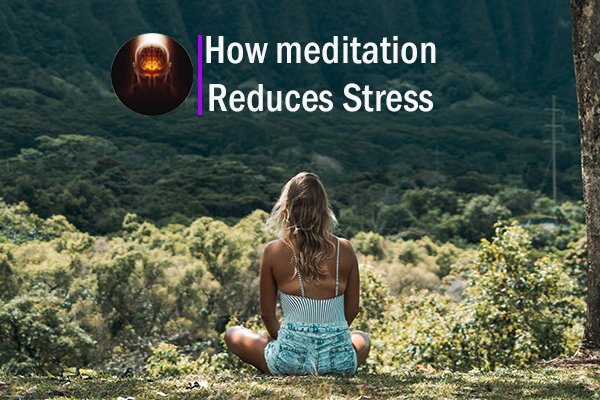Renew your life Today
Finding Peace Amidst Chaos: The Healing Power of Meditation
In our fast-paced, hectic world, stress has become an unwelcome companion that affects both our mental and physical well-being. However, there is a powerful tool available to us all – meditation. Through its ancient practice, meditation has proven to be a valuable tool for managing stress and finding inner peace. In this blog post, we will explore how meditation helps in stress reduction and why incorporating this practice into our daily lives is essential for achieving long-term well-being.
Activating the Relaxation Response
When we meditate, we tap into the parasympathetic nervous system, triggering what is known as the relaxation response. This response is the opposite of the well-known fight-or-flight response, which is activated during times of stress. By activating the relaxation response, meditation allows us to tap into our body’s natural ability to unwind and find calmness amidst the chaos.
Reducing Stress Hormones
One of the primary ways meditation helps in stress reduction is by reducing the production of stress hormones, such as cortisol. Cortisol is often referred to as the “stress hormone” because its levels dramatically increase during times of pressure. However, numerous studies have shown that consistent meditation practice can lead to long-term reductions in overall stress levels.
Creating Space for Self-Care.
In our modern lives, caring for ourselves often takes a backseat to our never-ending to-do lists. We rarely take the time to recharge and rejuvenate. Meditation provides us an opportunity to create space for self-care. By carving out a few minutes each day to sit in stillness and silence, we honor our need for introspection, introspection, and healing. It is in this quiet space that we find solace and rediscover our inner strength.
Improving Mental Resilience
In addition to stress reduction, meditation has the power to improve our mental resilience. Regular practice helps us develop a sense of mindfulness, allowing us to observe and manage our thoughts and emotions with detachment. Through meditation, we cultivate a sense of presence and learn not to get consumed by the constant chatter in our minds. By doing so, we develop a new perspective and become better equipped to deal with life’s challenges.
Creating Balance in Life
As we dive deeper into the practice of meditation, we realize its ability to create balance in our lives. It encourages us to slow down in a world that never stops. By incorporating meditation into our daily routine, we create a space for reflection, gratitude, and self-compassion. This balance spills over into all aspects of our lives – from our relationships to our work – enhancing our overall well-being and allowing us to thrive.
Conclusion
Meditation is a powerful antidote to the overwhelming stress that often accompanies modern life. By incorporating this ancient practice into our daily routine, we activate the relaxation response, reduce the production of stress hormones, and cultivate mental resilience. Additionally, meditation provides us with the much-needed time and space for self-care and creating balance in our lives. Embrace meditation as a tool for stress reduction and unlock the key to finding peace amidst the chaos of everyday life.


